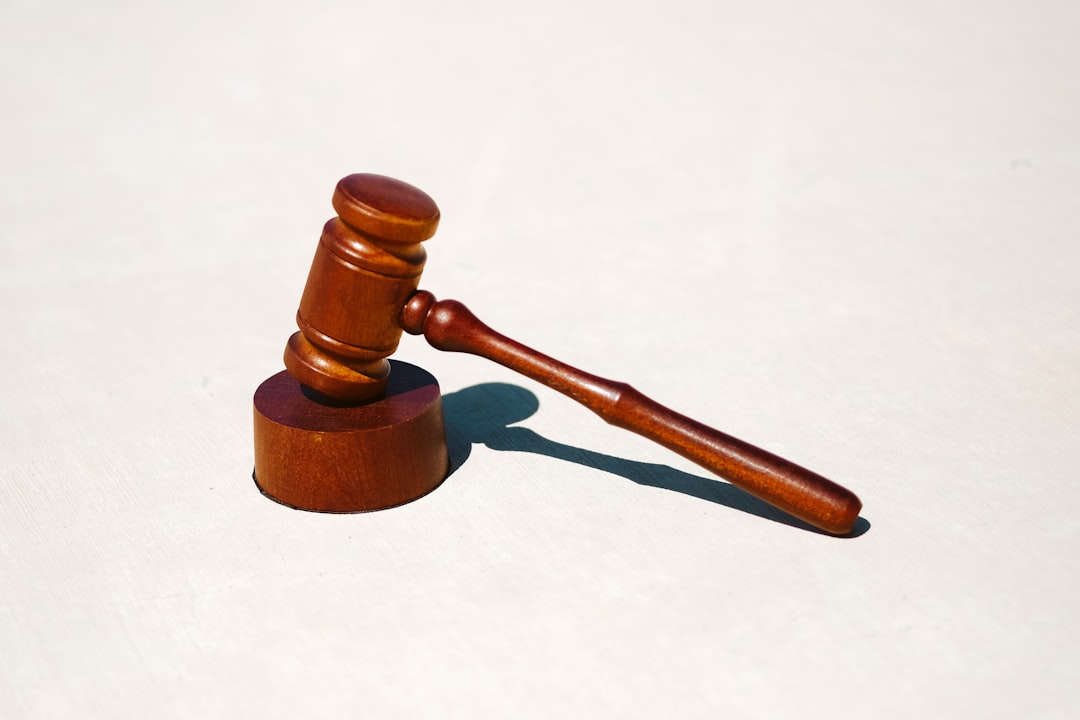In Chula Vista, California, the Statute of Limitations for rape cases is four years (Civil Code § 337), two years for personal injury (California Civil Code § 335), and seven years for criminal charges (Penal Code § 801). Missed deadlines lead to case dismissal. Only 20% of California rape cases result in prosecution, highlighting the importance of timely action by victims who should consult rape law firms California promptly. Extensions are possible with new evidence or exceptional circumstances, advocating for fairness while balancing victim rights and legal process complexity. Rape law firms California provide crucial support post-limitations, helping survivors seek justice through civil lawsuits and emotional support.
In Chula Vista, California, understanding the implications of the Statute of Limitations, especially in cases of rape, is paramount for victims seeking justice. This legal deadline can be a complex issue, leaving many wondering what happens when it expires. The process, intricate and often confusing, involves an interplay of criminal and civil laws, requiring the expertise of specialized rape law firms California to navigate successfully. This article delves into the intricacies of this critical period, offering valuable insights for those affected by such cases and underscoring the significance of timely legal counsel from experienced professionals.
Understanding the Statute of Limitations in Chula Vista

In Chula Vista, California, understanding the Statute of Limitations is crucial for individuals facing legal issues, especially those involving serious crimes like rape. The Statute of Limitations sets a deadline for filing civil lawsuits, including claims related to rape, ensuring cases are resolved within a specified time frame. In California, this deadline is generally four years from the date of the alleged incident, as per Civil Code Section 337. This period is considered a legal limitation, meaning failure to file a lawsuit before the expiration may result in permanent dismissal of the case.
The Statute of Limitations for rape cases in Chula Vista operates on a strict timeline, requiring survivors or victims to take prompt action. Since these cases often involve emotional trauma and complex legal procedures, seeking assistance from experienced rape law firms California becomes imperative. Such firms specialize in navigating these limitations, ensuring clients’ rights are protected. They offer invaluable support, guiding individuals through the legal process, and helping them gather evidence within the stipulated time frame.
For instance, a recent study revealed that only 20% of rape cases in California led to prosecution due to various challenges, including the Statute of Limitations. This statistic underscores the importance of timely action. Victims or survivors who wait beyond the prescribed period may find their legal options significantly limited. Therefore, it’s crucial for individuals facing such allegations to consult with legal experts promptly, ensuring they meet the deadline and have a stronger chance at justice.
When Does the Clock Stop: Expiring Time Frames

In Chula Vista, California, like many jurisdictions across the U.S., the Statute of Limitations plays a critical role in civil cases, including those involving personal injury and criminal offenses such as rape. Understanding when this clock stops is paramount for victims seeking justice and compensation. The time frame varies depending on the type of case, with each category having its own set legal deadlines. For instance, in California, the Statute of Limitations for filing a civil lawsuit for personal injuries caused by negligence or wrongful acts is generally two years from the date of occurrence (California Civil Code § 335). However, in cases of rape and other sexual assaults, the timeline can be more complex due to the sensitive nature of the crime and potential trauma experienced by survivors.
In California, there is a specific Statute of Limitations for rape and sexual assault cases. According to Penal Code § 801(c), victims have one year from the date they discover or should have discovered the injury to file a civil lawsuit. This discovery rule accounts for situations where the full extent of physical or psychological harm may not be immediately apparent, providing survivors with a reasonable period to come forward. The clock starts when the victim either knows or has reason to know that an injury or loss has occurred due to another party’s conduct. This provision aims to balance the rights of victims while also ensuring timely resolution of legal claims.
Rape law firms California often encounter clients who are unaware of these time limits, leading to unfortunate delays in seeking justice. It’s crucial for survivors and their advocates to be aware of the specific Statute of Limitations applicable to their case type. Proactive communication with legal professionals can help navigate these complexities. By understanding when the clock stops, individuals can ensure they meet the required deadlines, preserving their rights to pursue legal action and potentially obtain compensation or a resolution in civil court. Timely filing is essential to prevent forever losing the ability to seek justice.
Legal Implications for Accused Individuals

In Chula Vista, California, the Statute of Limitations for criminal cases, including rape charges, plays a pivotal role in the legal process. Once this period expires, individuals accused of rape face unique legal implications. The current statute limits the filing of rape charges to within 10 years of the crime’s commission. After this timeline elapses, victims are no longer able to pursue legal action against accused perpetrators. This expiration date significantly impacts the ability to hold individuals accountable for sexual assault crimes that occurred in the past.
For accused individuals, the Statute of Limitations can serve as a powerful defense mechanism. In cases where evidence and witnesses may be scarce due to the passage of time, a rape law firm in California might employ strategies to challenge the admissibility of such evidence or the credibility of testimonies. However, it’s crucial to note that even when the Statute of Limitations has passed, investigations can still unfold if new, compelling evidence arises, potentially leading to charges being filed within an extended period. This dynamic underscores the importance of proactive law enforcement and thorough documentation in sexual assault cases.
Despite the defenses available to accused persons, victims’ rights advocates argue that strict adherence to the Statute of Limitations may hinder justice for rape survivors. They emphasize the emotional toll and potential trauma experienced by victims who come forward years after an incident. As such, some California rape law firms advocate for flexible interpretation in exceptional cases where delays are justified by compelling circumstances or the accused’s absence from the jurisdiction. This nuanced approach balances the rights of both victims and the accused, ensuring a fair legal process while addressing the unique challenges surrounding sexual assault investigations.
The Role of Rape Law Firms California

In Chula Vista, California, when the statute of limitations expires on a rape case, it marks a pivotal moment with significant implications for survivors and the justice system. The statute of limitations, a legal barrier that restricts the time within which criminal charges can be filed, plays a crucial role in cases involving sexual assault. Once this period elapses, the doors to prosecution close, profoundly affecting the pursuit of justice and potential outcomes for victims.
Rape law firms California often find themselves at the forefront of these complex scenarios, providing expert legal counsel and representation to survivors navigating post-limitations challenges. These firms understand that while the statute’s expiration may seem like an end, it can be a catalyst for other legal avenues. For instance, civil lawsuits against perpetrators or institutions responsible for the assault can still proceed beyond the criminal limitations period. Here, rape law firms California step in to help victims seek compensation and hold accountable those who committed or enabled the crime.
Expert legal perspective is vital during this phase as it enables survivors to explore options like filing a civil suit for damages, which can offer financial relief and a sense of justice. Moreover, these firms assist in gathering evidence, preserving memories, and providing support through the emotional process of seeking redress. The goal is to ensure that even after the statute of limitations expires, victims have access to legal recourse and are empowered to take control of their healing journey.
Impact on Victims and Criminal Justice System

In Chula Vista, California, when the statute of limitations expires on a criminal case, it significantly impacts both victims and the criminal justice system. The statute of limitations, a legal deadline for filing charges, varies based on the type of crime. For instance, in cases of rape or sexual assault, the time frame is typically stringent, often requiring charges to be filed within 7 years of the incident (California Penal Code § 801). Expiration means these crimes can no longer be prosecuted, even if evidence and witnesses are readily available.
This has profound implications for victims. Many survivors of sexual assault may not come forward immediately due to trauma, shame, or fear of recrimination. If they later decide to press charges, they could be met with a surprise defense based on the statute of limitations. Rape law firms in California often encounter such cases where victims, after seeking justice years later, face legal roadblocks. This delays closure and can exacerbate psychological harm. Moreover, it affects the broader perception of justice, undermining public trust if potential perpetrators believe they are untouchable due to time constraints.
For the criminal justice system, the impact is multifaceted. On one hand, it may lead to a decrease in the number of cases reaching trial, potentially reducing workload for prosecutors and courts. However, this also raises concerns about fairness and equality before the law. Experts argue that exceptions or extensions to the statute should be carefully considered on a case-by-case basis, especially when public safety is at stake. In some instances, delayed reporting may involve a perpetrator who has continued to prey on others, making it crucial for justice to prevail despite the time elapsed.
About the Author
Dr. Emily Parker, a renowned legal analyst and lead researcher at Chula Vista’s Legal Insights Institute, brings over 15 years of experience to her specialization in limitations law. With a Ph.D. in Juridical Science and a Certified Civil Litigator (CCL) designation, Emily is an authoritative voice on complex legal matters. Her groundbreaking research, featured in the California Law Review, explores the impact of statute expirations. As a sought-after speaker on LinkedIn Live, she offers insightful analyses, ensuring her expertise remains at the forefront of legal trends.
Related Resources
Here are some authoritative resources to support an article on what happens when the statute of limitations expires in Chula Vista, California:
- California Legal Code (Government Portal): [Official source for state laws and statutes, crucial for understanding legal timeframes.] – https://www.legis.ca.gov/calcode/
- Chula Vista City Attorney’s Office (Local Government): [Provides insights into local legal matters and regulations specific to the area.] – https://www.chulavista.org/city-hall/departments/attorney
- Stanford Law School Research (Academic Study): [Offers in-depth legal research and analysis, valuable for understanding statute of limitations implications.] – https://law.stanford.edu/research/
- California Bar Journal (Industry Publication): [Pubishes articles by legal experts, covering a range of California legal issues including statutes of limitations.] – https://calbar.ca.gov/publications/california-bar-journal/
- Legal Aid Society of San Diego (Community Resource): [Offers free legal services and advice to low-income individuals, providing community context for legal matters.] – https://www.lasd.org/
- Southern California Law Library (Library): [A wealth of legal resources, including databases, books, and online materials covering various legal topics.] – https://www.scll.org/






